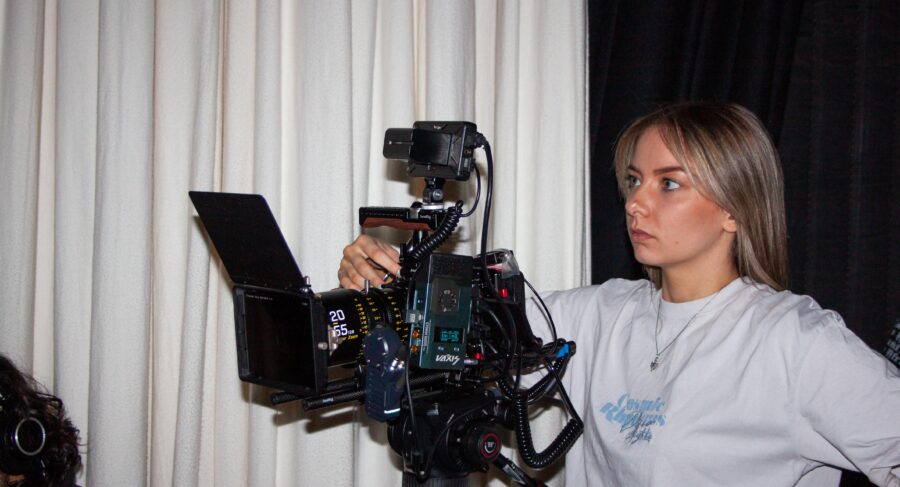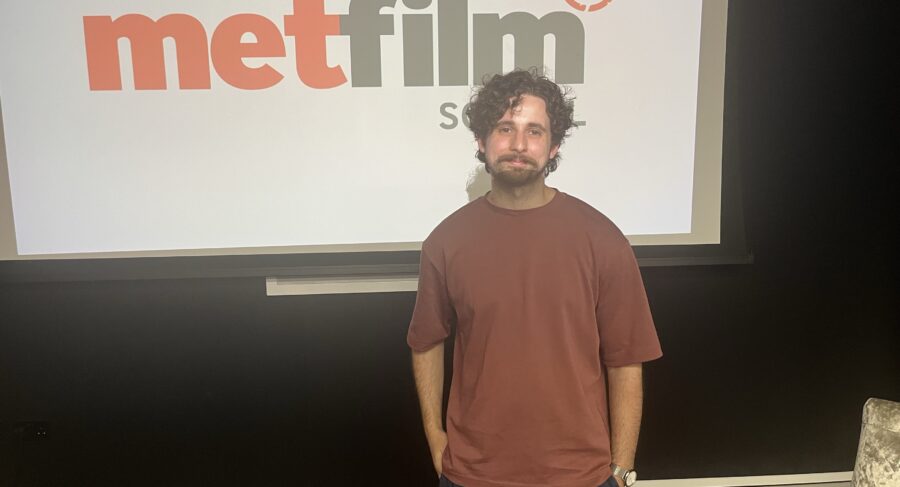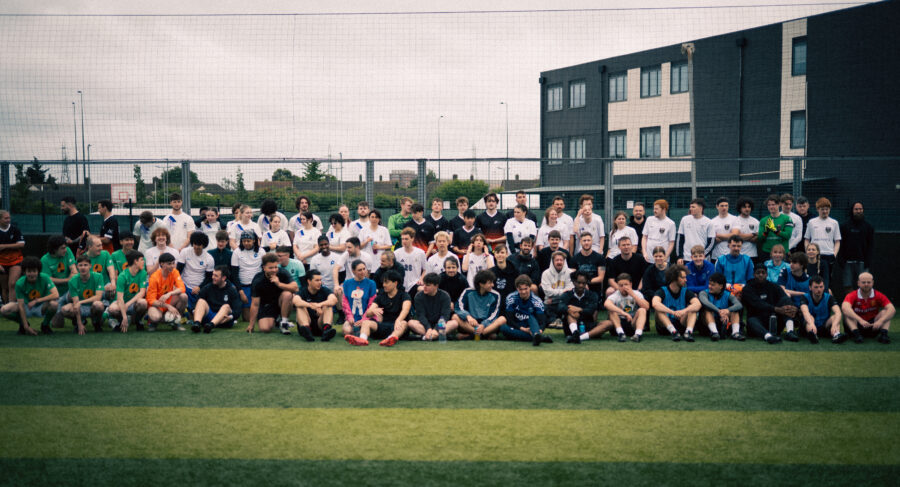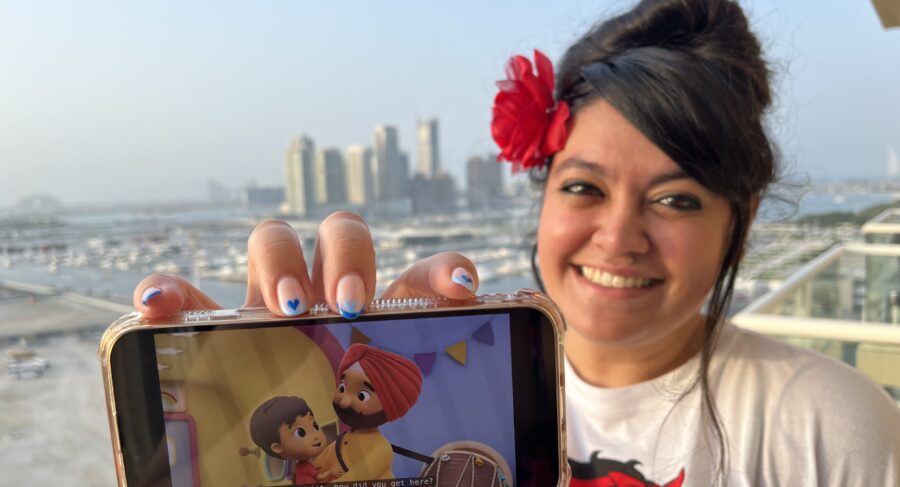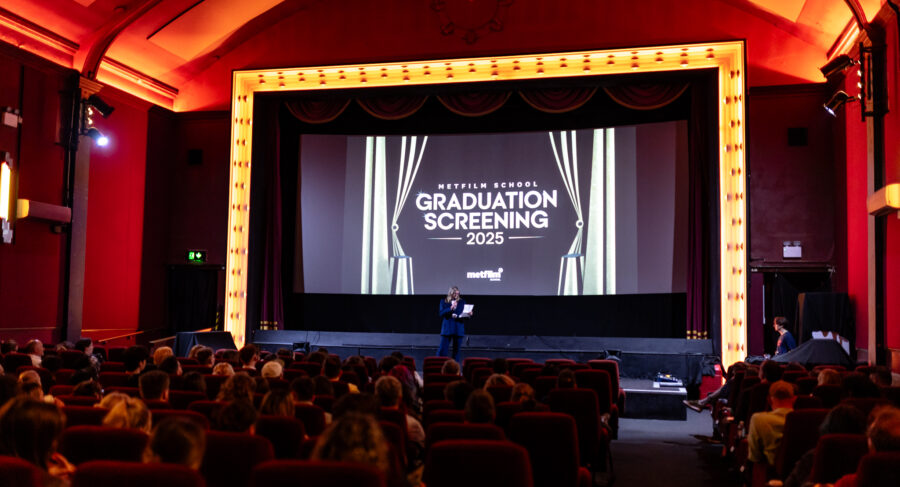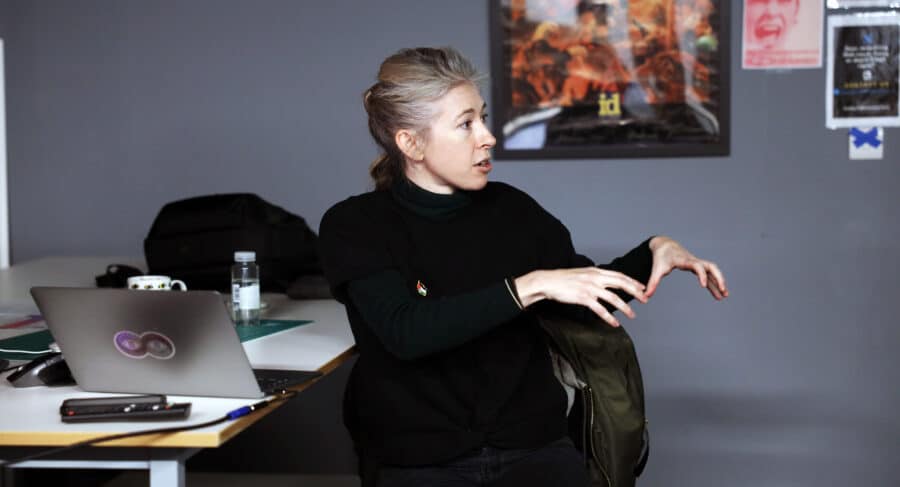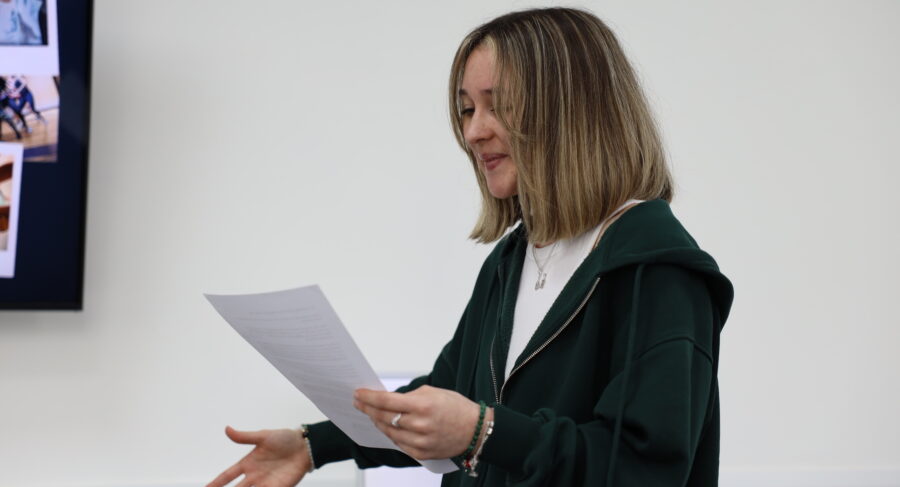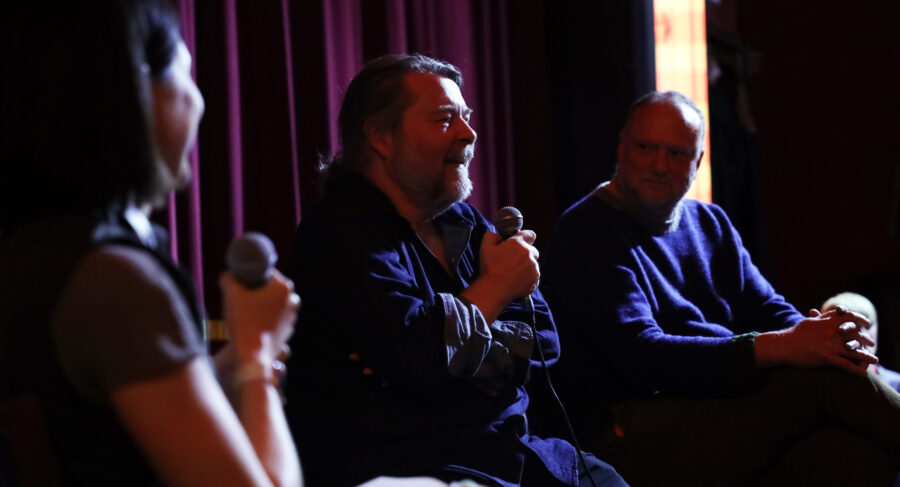MetFilm School x BFI: The craft of screenwriting with Jeremy Ojo
By Elise Czyzowska
03 February 2023
At the start of our MetFilm School Masterclass with screenwriter Jeremy Ojo, he explained how he discovered his career path almost by accident. After completing his English degree, he was – ‘like many people who do English’, thinking about what he should do next. It was at this point that a friend reached out with an idea for a web series, and Jeremy agreed to join the project.
‘As soon as I started writing on that, I had a rush of dopamine. I realised that this felt like fun, it didn’t even feel like hard work.’
Across the project, the duo called on every favour they could, taking on the writing, directing, production, and even acting in the series themselves. And it paid off – Shoestring, named for the tight budget it was created out of, garnered huge interest across social media. The pair were selected for the BFI Network’s ‘Pick of the Month’, then ‘Pick of the Year’, and before long, they were on their way to a meeting with the BBC. ‘We were stoked’, Jeremy reminisced, ‘and then nothing happened.’
From this moment, Jeremy decided he needed to start actively working in the industry. Skip forward to today, and he has joined the writer’s room for season three of Gangs of London, as well as having been selected for the 2021 BBC ‘London Voices’ Writers Room.
Having also gained experience at production companies – starting with a six-month internship at Roughcut, and even joining the Drama Commissioning team at Netflix, we were lucky enough to speak with Jeremy in a recent masterclass. Here are our top takeaways from the session…
The creative process
The first student question of the session was from Gio, who asked Jeremy to explain his writing process, from the initial idea to the final draft.
‘My process has always been the initial seed’, he answered. ‘Then, I play out a number of scenarios as to how that seed grows, and to what it looks like.’
While his process is constantly evolving, there are a handful of steps that Jeremy weaves into each project he works on. The first is to use people that he trusts. Sharing an outline, a couple pages, or even an entire scene, and asking friends to tell him where they think the story is going can be a helpful way to make sure that what you thought you were writing has been clearly translated onto the page.
Secondly, he writes with two documents. The first, a ‘rough work’ version where he can save all the various copies of scenes that didn’t work out, or ideas and concepts he once thought were good, but later changed his mind on – ‘these are all things that can inspire me, and that I can go back to later’. He then uses this first document to inform the second ‘master copy’, which will be the script he later sends to his agent.
Finally, he never pushes himself to figure out the ending to his stories. This strategy might seem unthinkable to some writers, but without a set ending stunting new ideas, it might allow your story to take a turn you never would’ve thought possible…
Watch ’21st century dating’, a clip from the pilot episode of Shoestring
Finding discipline in writing
As with many creative crafts, especially those more ‘freelance’ in their hours or defined responsibilities, writing takes a large degree of self-discipline. As When Harry Met Sally screenwriter Nora Ephron sums up: ‘the hardest thing about writing is writing’.
After a student question about dealing with writer’s block, Jeremy admitted that he had experienced the annoyance (to put it lightly), possibly for the first time in his life, only a few months ago. ‘I was midway through the script, and I was actually having moments of imposter syndrome, thinking about whether I could even pull this off.’
His advice for dealing with these doubts? Unpick the reason behind them. Figure out where the block stems from. ‘Often’, he adds, ‘it’s just that you’re scared to put the words down’. The solution is, of course, the tried and tested method of writing anything just to write something. ‘If you write something down,’ he explains, ‘you can still edit it, and you can still flow with it. It can be a jumping off point for you in the future’.
Setting goals and deadlines
In a similar vein, another student asked for advice in organising the writing process, especially for those writers dealing with ADHD. For this, Jeremy shared that he works best when he has the time to slowly chip away at a task, rather than setting aside whole days to finish it in one go. Completing a script a week before the deadline means that you have the time to polish it, to make sure your ideas look their best – if you leave things until the day before, you lose out on this opportunity.
A practical tip for making time to write is to keep your eye out for competitions:
‘Obviously, competitions are a way to get noticed, but they also help me with deadlines. When I was hungry, looking to get representation, the thing that made me write my scripts was always a deadline to submit to a competition.’
In fact, it was a BBC competition which Jeremy entered on a whim, submitting a web series he had joined after responding to a ‘male writer request’ on Twitter, that landed him in the BBC ‘London Voices’ Writers Room!
Watch InterConnected, Party from the BBC Writer’s Room, written by Jeremy Ojo and Alegría Adedji
Pitching your ideas
Pitching is a huge part of the job when it comes to screenwriting, and this means that unfortunately, so is rejection – which, according to Jeremy, rarely comes in the form of an outright ‘no’, and instead sounds more like a ‘that’s interesting… send us that’, followed by a quiet ‘pass’ later down the line.
From his own experience pitching scripts, to working on Netflix’s Drama Commissioning Team, Jeremy’s top advice is to be confident with your story, and to have a firm grasp over everything you’ve written.
This also means finding the balance between changing your ideas to please the room (which might cause them to lose trust in your unique voice), and becoming combative when faced with notes. The best way to deal with suggestions or direct questions is to take them at face value. ‘A pitch is not an exam’, Jeremy added. ‘Don’t feel that any of the questions have a catch to trip you out. People just want to get an idea of what the show is about’.
What makes a good script?
Finally, BA Screen Acting Programme Leader Justin Trefgarne, who hosted this Masterclass, asked the age-old question, What makes a good script? As impossible as that question may seem, Jeremy shared five points that go a long, long way towards answering it…
- The world should feel fun: ‘I don’t mean fun like Disneyland. It needs to feel fresh, exciting, new – even if it’s a familiar world, you need to have a different take on it. Your voice needs to come through.’
- Strong dialogue: ‘People don’t want to say it, but in all the best things you’ve seen, the dialogue is always at least pretty good.’
- Clear characterisation: ‘I watched Chinatown, and then I watched five video essays on how they set up Jack Nicholson’s character – because that’s what involves your worldview in the film. Ask yourself what you are doing to make your character memorable.’
- Good drama: ‘Look at shows like Broadchurch, which actually have a very simple formula, but which constantly generate new ideas to keep you on the edge of your seat.’
- And finally, ask yourself: Would I want to watch this?
- A huge thankyou to Jeremy Ojo for joining us at the latest Masterclass in our MetFilm School x BFI series. Read more blogs from this series: Costume Design with Jill Taylor, and Casting with Andy Brierley.
- MA Screenwriting is available in London, Berlin, and Leeds.

